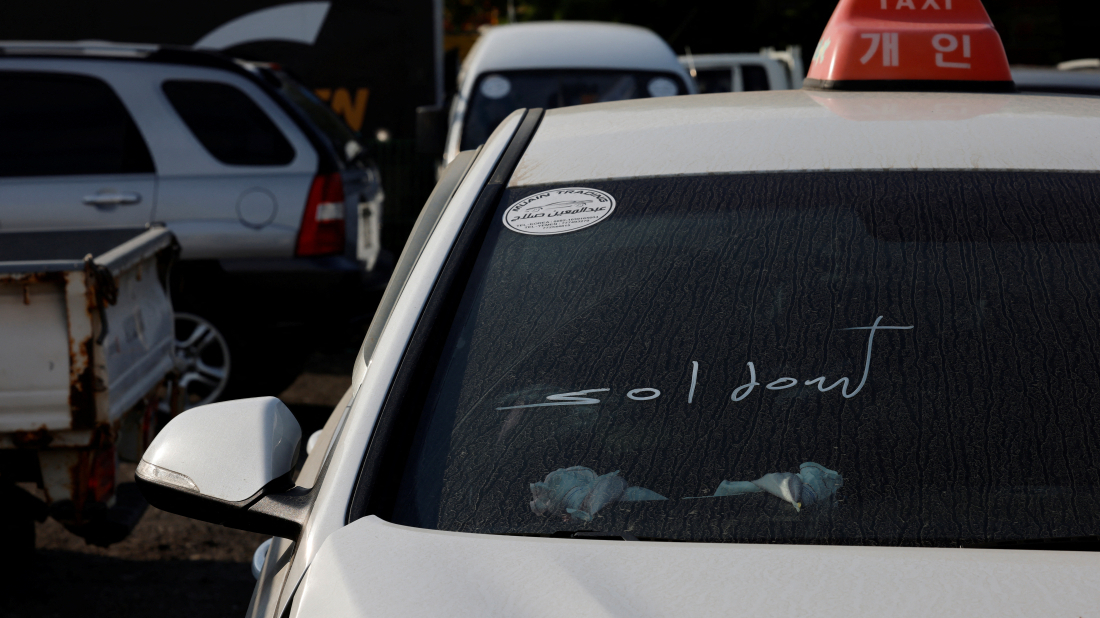Israel orders Lebanese to leave swathe of the south 'immediately'
Israel has warned residents to leave a significant area in southern Lebanon, instructing them to move north of the Li...

South Korea’s used car industry is experiencing record growth this year, with surging exports helping cushion the impact of steep U.S. tariffs on new vehicles.
At informal export sites in Incheon, traders are loading thousands of second-hand cars for shipment abroad. Dealers say that while sales to the U.S. have been hit by tariffs, business in other markets has expanded sharply.
Record levels of trade
Government data show South Korea exported $5.5 billion worth of vehicles in August 2025, up 9% from a year earlier and the highest monthly total on record. Exports of used cars alone rose 35% year-on-year to $711.5 million, according to the Korea Used Car Distribution Research Institute.
In the first half of 2025, second-hand car exports grew 72% to $3.9 billion, with 437,151 vehicles shipped — representing about a quarter of total auto export volumes.
Russia has become a significant destination, importing an average of 3,277 units per month, a 40% increase from last year. Kyrgyzstan, which re-exports to neighbouring markets, purchased 9,083 units, up 35%. Demand has also risen in the Middle East: Syria imported 11,809 used vehicles in the first half of 2025, compared with just 75 in the same period last year, before a ban on used car imports took effect in July.
Industry concerns
Park Young-hwa, head of the Korea Used Car Export Association, said demand had exceeded expectations.
“Exports in the first half alone reached about 450,000 units. We had projected a little more than 700,000 for the full year,” he noted.
He added that exporters still face infrastructure challenges. With no dedicated export facilities, private firms often use rented open lots.
“In summer, buyers literally get stuck in the mud while inspecting cars. The conditions are inadequate in many respects,” Park said.
Impact of U.S. tariffs
The United States remains South Korea’s largest market for new cars, but the 25% tariff — higher than the 15% applied to Japanese and European vehicles — has slowed shipments. Negotiations continue between the two governments to reduce the rate.
Analysts believe the measures may indirectly support the second-hand sector.
“Higher tariffs on new cars generally drive up global vehicle prices over time, which can strengthen the market for used cars,” said Shin Hyun-do, director of the Korea Used Car Distribution Research Institute.
Outlook
Despite logistical hurdles and uncertainty over tariffs, South Korea’s used car exports are expected to reach new highs in both volume and value this year. Industry officials say continued demand from Russia, Central Asia and the Middle East will remain the main drivers of growth.
U.S. President Donald Trump said the U.S. military has enough stockpiled weapons to fight wars "forever"; in a social media post late on Monday. The remarks came hours before conflict in Iran and the Middle East entered its fourth day.
U.S. first lady, Melania Trump chaired a UN Security Council meeting on children and education in conflict on Monday (2 March), a move criticised by Iran as hypocritical following U.S. and Israeli strikes that triggered a UN warning about risks to children.
A torpedo from a U.S. submarine sunk an Iranian warship off the coast of Sri Lanka, U.S. Secretary of Defense, Pete Hegseth told reporters as the Iranian conflcit entered its fifth day on Wednesday.
The U.S. embassy in Riyadh was hit by two drones resulting in a limited fire and some material damage, the kingdom's defence ministry said in a post on X on Tuesday, citing an initial assessment.
Shahid Motahari Sub-Speciality Hospital in northern Tehran and parts of the Golestan Palace were bombed on day two of the U.S.‑Israel strikes. AnewZ Touraj Shiralilou is in Iran's capital city and said that the facility was flattened in an airstrike.
Israel has warned residents to leave a significant area in southern Lebanon, instructing them to move north of the Litani River as hostilities with the Iran-backed Lebanese group Hezbollah intensified on Wednesday.
U.S. Defense Secretary Pete Hegseth says the United States is making gains in its conflict with Iran after a key Iranian naval target was destroyed, confirming that the strike was carried out by a U.S. submarine off the coast of Sri Lanka. Rescue efforts are now under way for the ship’s crew.
Start your day informed with AnewZ Morning Brief. Here are the top news stories for the 4th of February, covering the latest developments you need to know.
Strikes across the Middle East are intensifying, fuelling travel disruption, driving up global energy prices and forcing diplomatic missions to shut their doors.
U.S. President Donald Trump has said the United States has a “virtually unlimited supply” of munitions and is capable of sustaining military action indefinitely, as the conflict with Iran entered its fourth day.
You can download the AnewZ application from Play Store and the App Store.

What is your opinion on this topic?
Leave the first comment